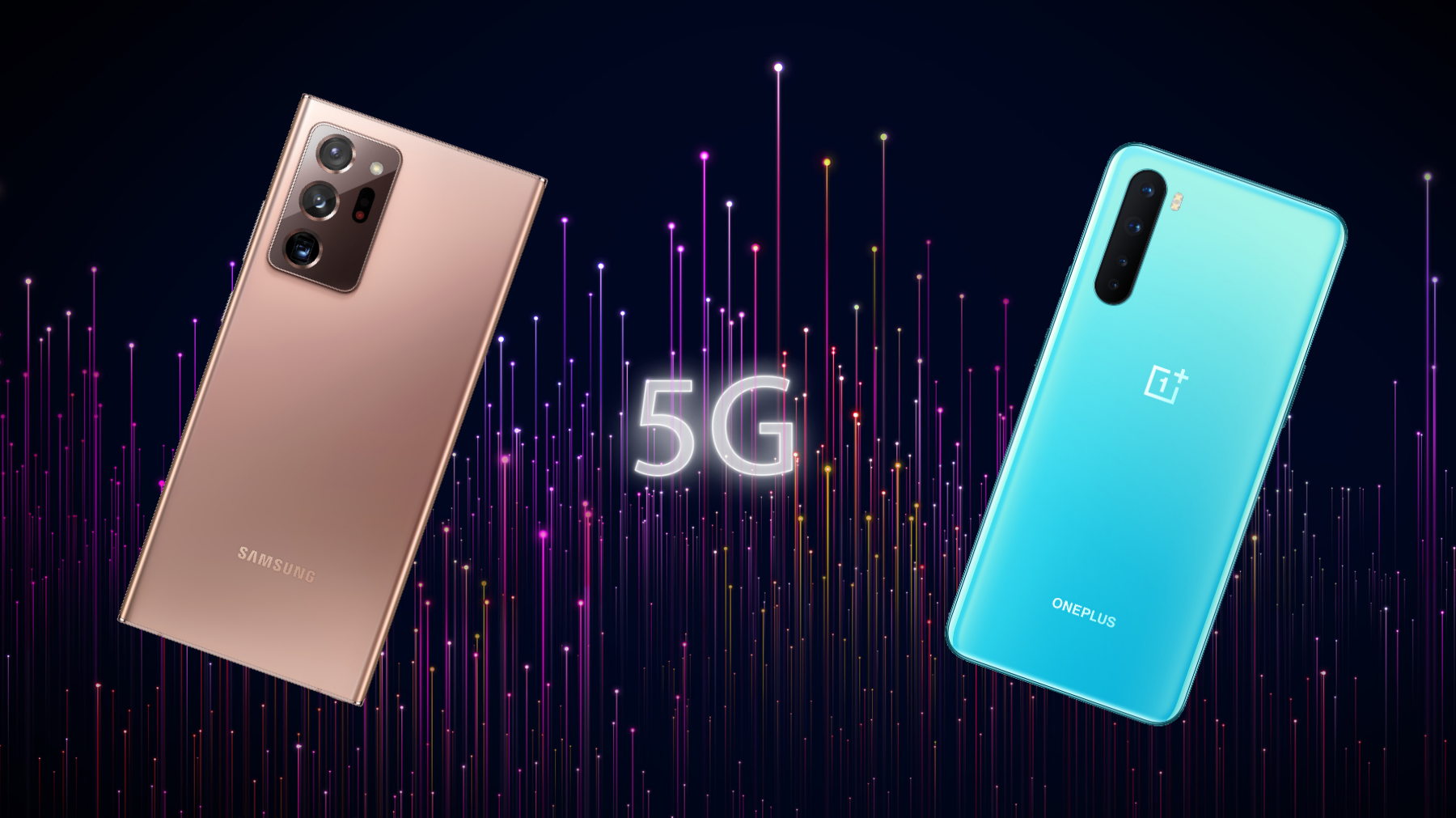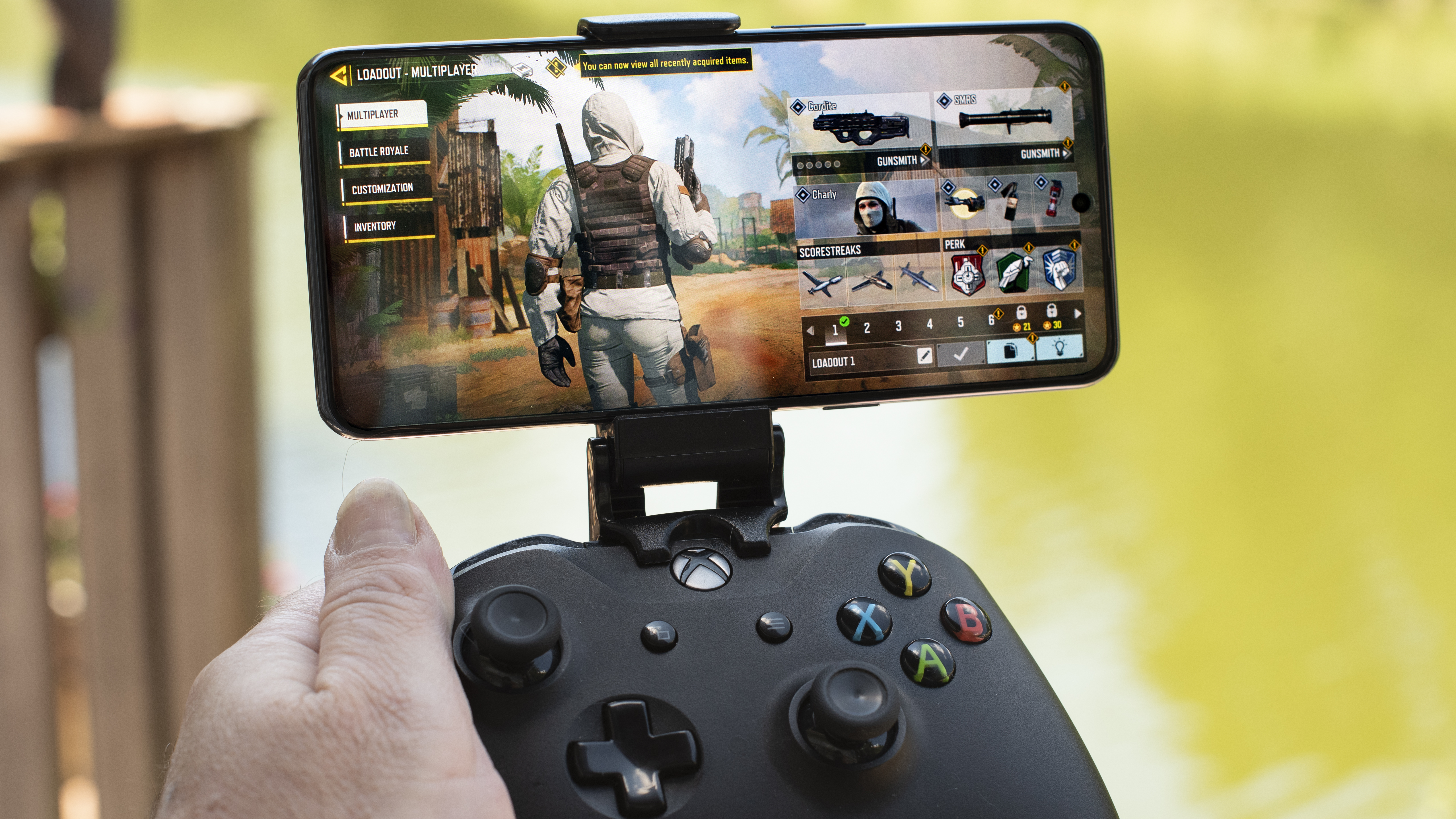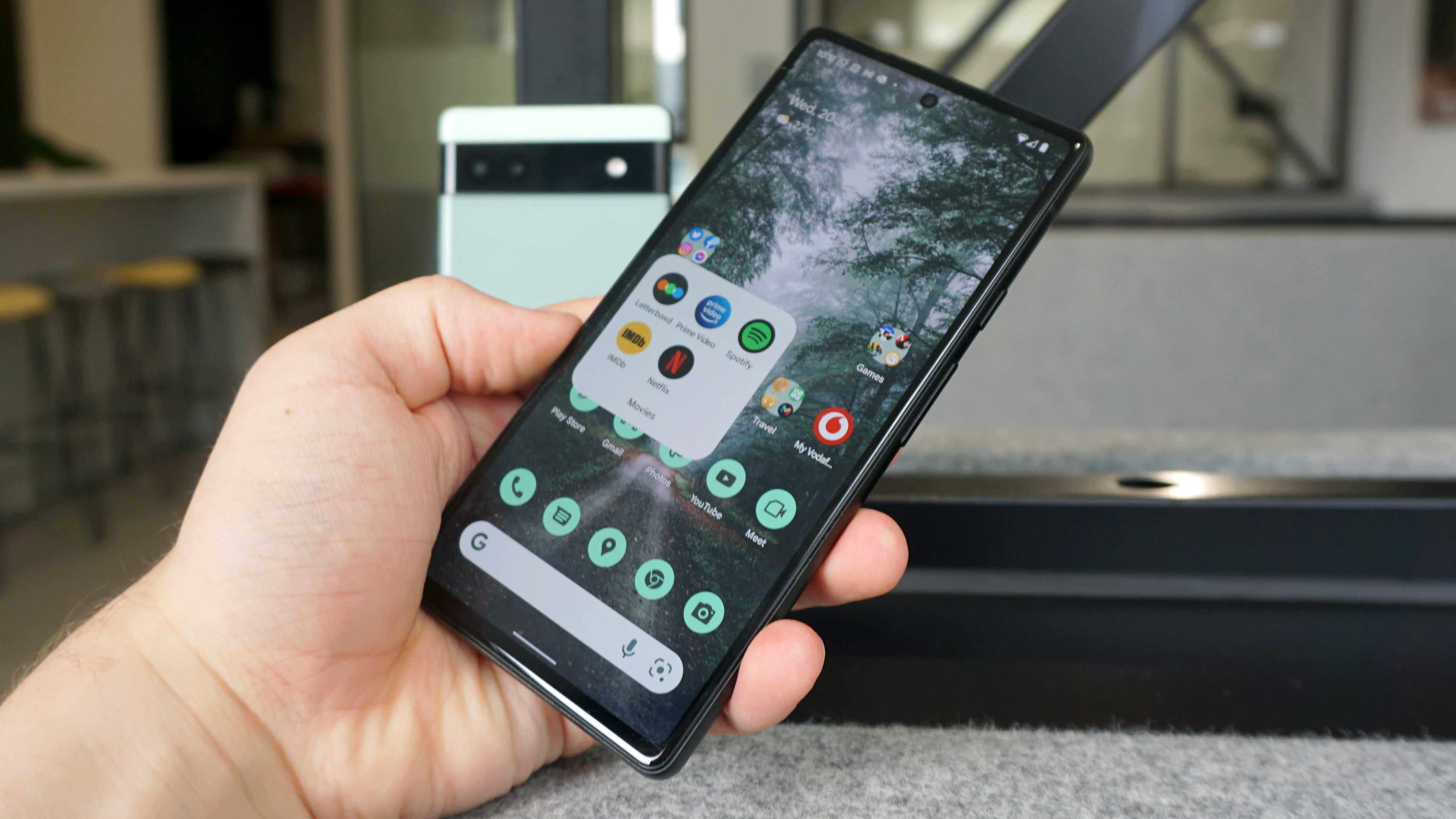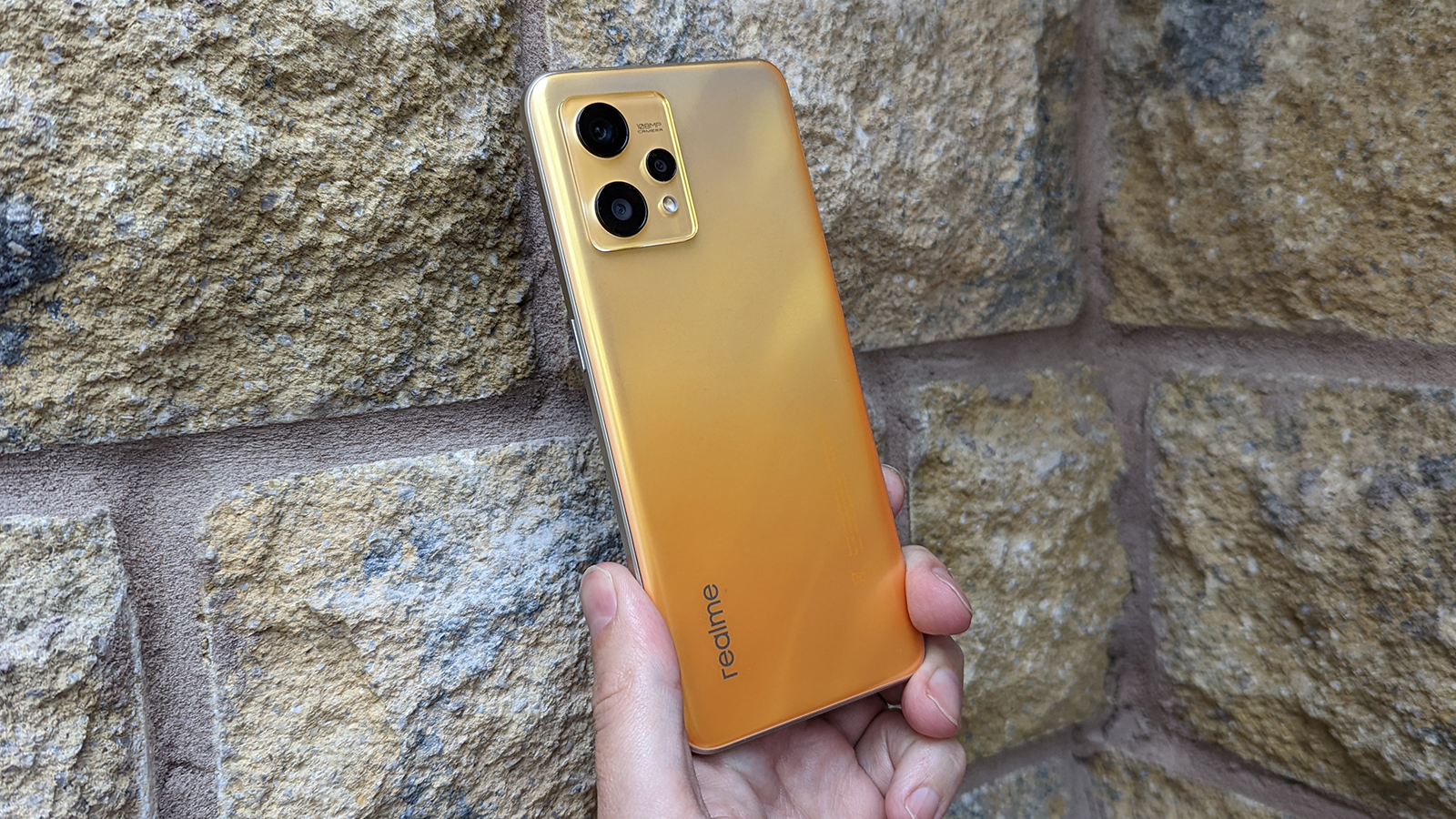Should you buy a 5G phone in 2022?
Pros and cons of riding the 5G wave

Sign up for breaking news, reviews, opinion, top tech deals, and more.
You are now subscribed
Your newsletter sign-up was successful
If you're looking to buy one of the best 5G phones of 2022, know that the mobile landscape has massively changed since 5G first started rolling out in 2019.
These days, 5G phones are ubiquitous; nearly every new device, whether you're looking at the best phones overall or the cheapest, run on the latest generation of networks.
You've probably seen the suffix '5G' slapped on at the end of many a phone name, touted by various cellphone companies alongside impenetrable – and just plain silly – descriptors like 'mmWave' (which is a really tasty wave, I guess? Or something inspired by the 1997 Hanson song, maybe?).
But beyond all the marketing fluff and jargon, you're probably asking one simple question: "Should I buy a 5G phone?" Well, we're going to guide you to the best answer for you, depending on how you use your phone.
Buy a 5G phone if...
You need a quick connection
If you've got good 5G coverage, you'll find that your connection speeds far exceed 4G (and even Wi-Fi speeds) if you're in the right place and the network isn't in too much demand.
That's really useful if you need a fast connection in a pinch, if you need to download big files without much notice, or upload information to the web without having to wait ages for it to happen.
It means you can quickly download a Netflix movie before hopping on the train; or easily drop your photo gallery into the cloud to make needed space on your phone.
Sign up for breaking news, reviews, opinion, top tech deals, and more.

You need a reliable connection
Beyond speed, another key trait of 5G is that it's more reliable than 4G, which means you can maintain consistent connection speeds without it wavering or dropping momentarily (in theory, at least – this can depend on a variety of factors).
Not only does this work with all the actions you need a quick connection for, like uploading files, it's also useful for all of those important tasks that require a steadfast and continuous connection.
A great example is online gaming. A good 5G connection will let you play online multiplayer games without dropping out or lagging behind. Another useful one is streaming, even at high resolutions, so you can watch videos while on the go (as long as you stay within 5G areas).
You need a new phone
This point isn't as much about the advantages of 5G, as it is about its inescapability.
Almost all new phones in 2022 are 5G ones, in all sectors of the mobile market. Folding or not, premium or budget, camera- or gaming-focused – the vast majority of new mobiles have 5G.
So if you're looking to buy a new phone, you're almost definitely going to be picking a 5G one, whether you know it or not.
There are a few select exceptions, with budget brands like Pocophone and Realme still releasing the occasional 4G phone. This is because of their international appeal, in regions that don't yet have 5G coverage.
However, unless a specific 4G device appeals to you, you will likely be making a choice from the vast 5G phone pool.
Don't buy a 5G phone if...

You need top battery life
One annoying side effect of 5G is that the connections are more power-hungry than 4G. That is to say, a 5G phone will lose battery at a quicker rate to its 4G equivalent.
Sometimes, this isn't an issue; if a phone has a huge battery, the extra drain of 5G will still give you a good day of use.
However, we're seeing more and more top-end and mid-range phones with poor battery lives, and while 5G isn't the only reason, it's definitely a contributing factor. If you want a long-lasting phone, you should considering buying one of the few 4G mobiles on the market – or an older device.
You don't think you'll need the benefits
While quick and reliable internet connections are useful, some people simply don't need those benefits.
If you just use your phone for calls and texts, and maybe the occasional Candy Crush session, or scrolling through social media feeds, you can do those things just fine on a 4G connection, or with Wi-Fi.

You don't have the budget for it
Admittedly, this point is becoming less relevant over time, but it's still something to bear in mind.
When 5G first launched, contracts for it were incredibly expensive. You'd find yourself paying more per GB than if you were on 4G, and you'd often have to buy pricey bundles too.
That's not quite the situation now, but you will probably still need to buy the bigger bundles anyway, given how quickly 5G phones can burn through data.
Plus, 5G phones are often pricier than they would be if they topped out at 4G instead. The average price of a budget phone has gone up over the last few years, and lots of brands are offsetting this increase (which is partly thanks to the silicon shortage) with phones that aren't quite as impressive as they could be.
Take-away
While 5G is a lot more commonplace now than it was at launch, it still hasn't fully justified its existence,
Right now, it's really useful for power users. If you use your phone for business, especially if you need to handle big files and download or upload them, you will probably welcome the added speeds and reliability of 5G. That's also true, to a lesser extent, for people who like their entertainment.
However, if you don't fit into that group, the real draw of 5G is that, if you want to buy a good phone, you basically have to pick up a 5G one.
With that in mind, it's probably not worth buying a brand-new 5G phone if your current one is working just fine. Perhaps pick one up when the phone you're using right now reaches the natural end of its life; but don't rush to get 5G before then.
When you do decide to buy a new handset, head over to our guide to the best 5G phones, which gives recommendations based on a few different use cases. Hopefully this will help with your buying decision.

Tom Bedford is a freelance contributor covering tech, entertainment and gaming. Beyond TechRadar, he has bylines on sites including GamesRadar, Digital Trends, WhattoWatch and BGR. From 2019 to 2022 he was on the TechRadar team as the staff writer and then deputy editor for the mobile team.